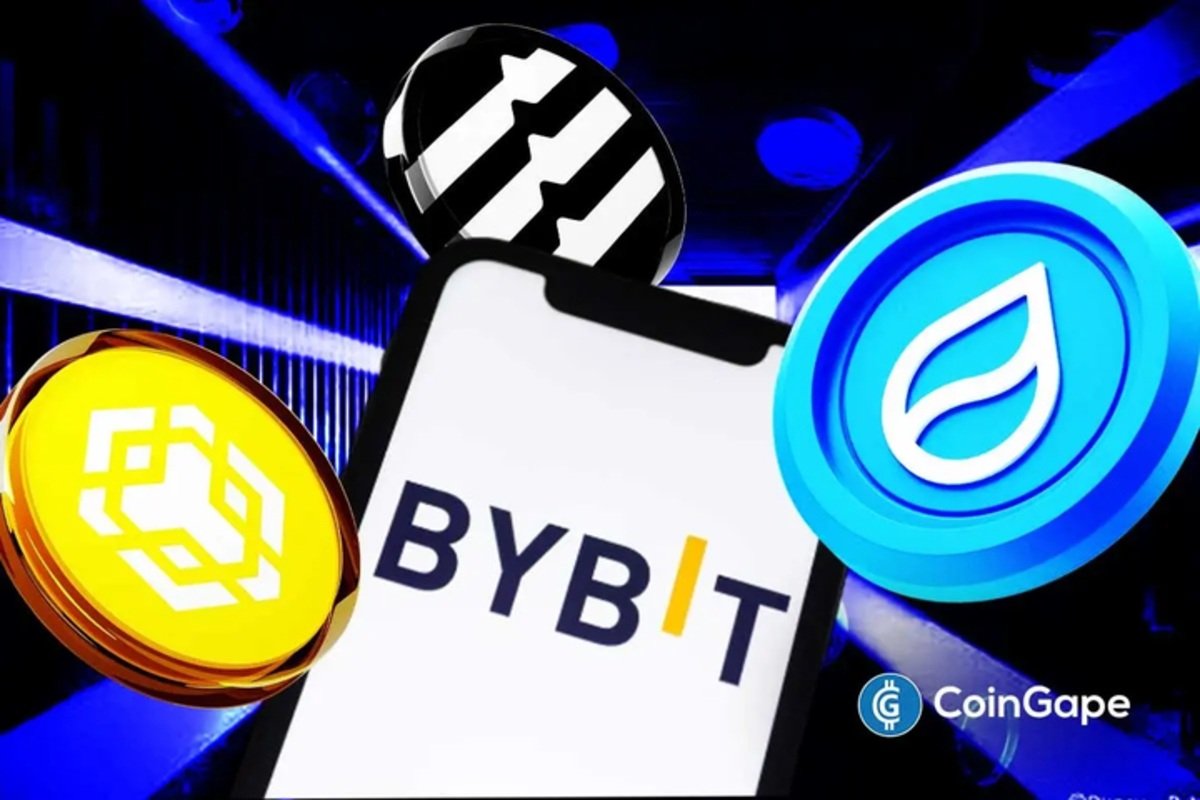Bybit Hack: Exchanges Freeze $42 Million From Exploit – Here’s All

Highlights
- Exchanges freeze nearly $43 million worth of stolen digital assets linked to Bybit’s security breach.
- Stablecoin issuers Tether and Circle joined ranks with exchanges to blacklist addresses.
- A postmortem into the hack is underway but hacker groups continue to lurk in the shadows.
While the cryptoverse is still reeling from the $1.5 billion Bybit hack, its peers have launched a concerted effort to recover looted funds. A Bybit statement confirms that the coordinated effort led to the freezing of nearly $43 million barely two days after the jarring security breach.
Exchanges Team Up To Recover Funds
According to Bybit’s X post, a total of $42.85 million have been frozen across a handful of exchanges in the wake of the attack. Decentralized exchange THORChain blacklisted several addresses linked to the North-Korean hacking syndicate while Coinex provided Bybit’s team with key insights.
ChangeNow froze 34 ETH ($97,000) in addresses linked to the hack while the Avalanche restricted access to 0.38755 BTC ($37,124). Lightning Network-based exchange FixedFloat froze 120,000 in USDC and USDT stablecoins, mirroring the efforts of Bitget and other centralized exchanges.
“Respect to their teams for their timely responses,” said Bybit on X. “They helped us monitor and block the blacklisted addresses.”
Per the statement, stablecoin issuers Tether and Circle are flagging addresses linked to the Bybit hack with Tether freezing 181,000 USDT.
Taking Proactive Steps Following The Bybit Hack
While law enforcement agencies and exchanges are keen on recovering stolen funds from the Bybit hack, the top crypto exchange is taking proactive steps to protect its users.
In collaboration with Pump.fun and Solana Foundation President Lily Lui, the team confirmed the removal of a Solana-based token with ties to marauding hacker groups. Onchain data indicates that the Lazarus Group is bridging its assets to Solana and using fake KYC data to deposit funds on exchanges.
In an advisory to users, Bybit warned that scammers are pretending to be officials of the exchange to obtain sensitive personal information.
“Bybit will never ask for your personal info, deposits, or passwords,” read the warning. “Always double-check official sources and report anything suspicious.”
On the other hand, Ethereum community members are mulling over the prospects of a blockchain rollback to stifle the efforts of Bybit’s attackers
- Peter Schiff Casts Doubt on Bitcoin Rally Ahead of Trump’s SOTU Speech
- Putin Signs Law to Confiscate Bitcoin Amid Russia’s Crypto Crackdown, Pavel Durov Probe
- Michael Saylor’s Strategy Moves $83M in Bitcoin as $9B Paper Losses Raises Pressure
- Stripe Eyes PayPal Acquisition Amid Stablecoin Expansion
- Expert Predicts Deeper Bitcoin Decline as JPMorgan CEO Warns of Similarities to the 2008 Financial Crisis
- Cardano Price Signals Rebound as Whales Accumulate 819M ADA
- Sui Price Eyes Recovery as Third Spot SUI ETF Debuts on Nasdaq
- Pi Network Price Eyes a 30% Jump as Migrations Jumps to 16M
- Will Ethereum Price Dip to $1,500 as Vitalik Buterin Continues Selling ETH?
- XRP Price Outlook as Clarity Act Passage Odds Plunge to 53%
- COIN Stock Risks Crashing to $100 as Odds of US Striking Iran Jump

 Claim Card
Claim Card














